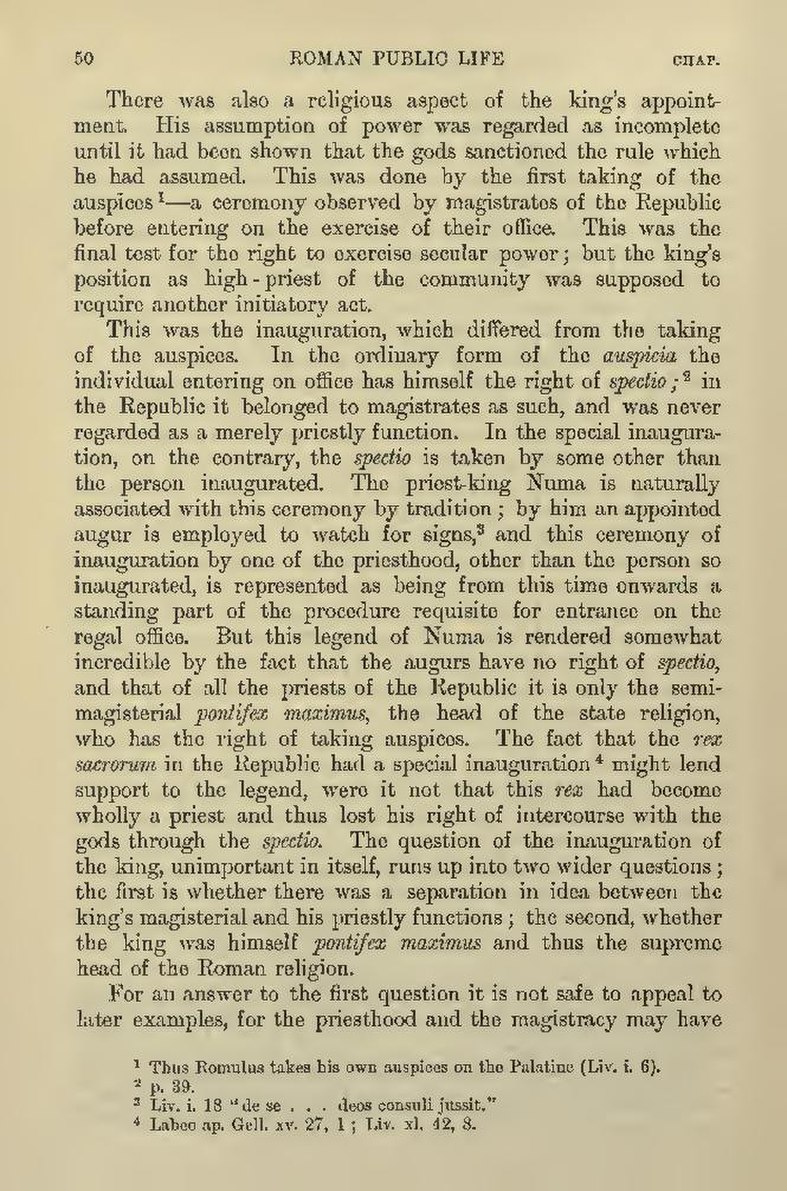There was also a religious aspect of the king's appointment. His assumption of power was regarded as incomplete until it had been shown that the gods sanctioned the rule which he had assumed. This was done by the first taking of the auspices[1]—a ceremony observed by magistrates of the Republic before entering on the exercise of their office. This was the final test for the right to exercise secular power; but the king's position as high-priest of the community was supposed to require another initiatory act.
This was the inauguration, which differed from the taking of the auspices. In the ordinary form of the auspicia the individual entering on office has himself the right of spectio;[2] in the Republic it belonged to magistrates as such, and was never regarded as a merely priestly function. In the special inauguration, on the contrary, the spectio is taken by some other than the person inaugurated. The priest-king Numa is naturally associated with this ceremony by tradition; by him an appointed augur is employed to watch for signs,[3] and this ceremony of inauguration by one of the priesthood, other than the person so inaugurated, is represented as being from this time onwards a standing part of the procedure requisite for entrance on the regal office. But this legend of Numa is rendered somewhat incredible by the fact that the augurs have no right of spectio, and that of all the priests of the Republic it is only the semi-*magisterial pontifex maximus, the head of the state religion, who has the right of taking auspices. The fact that the rex sacrorum in the Republic had a special inauguration[4] might lend support to the legend, were it not that this rex had become wholly a priest and thus lost his right of intercourse with the gods through the spectio. The question of the inauguration of the king, unimportant in itself, runs up into two wider questions; the first is whether there was a separation in idea between the king's magisterial and his priestly functions; the second, whether the king was himself pontifex maximus and thus the supreme head of the Roman religion.
For an answer to the first question it is not safe to appeal to later examples, for the priesthood and the magistracy may have
